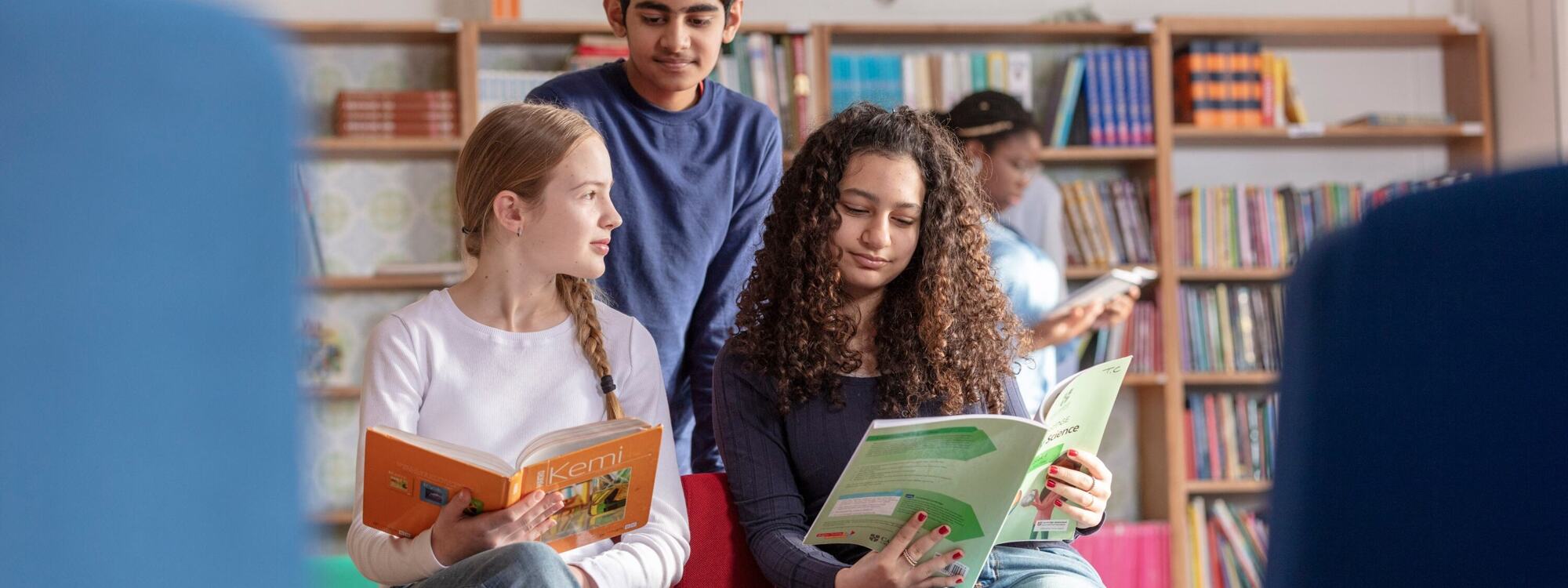- Home
- Learning & Academics
- Middle School
- Middle Years Programme (MYP)
Middle Years Programme (MYP)
UIS follows the International Baccalaureate's Middle Years Programme (MYP), which is a natural progression from the PYP and excellent preparation for the DP in Grades 11 and 12. The MYP spans Grades 6-10. Students will gain knowledge and undefined information with rigor in an environment that promotes student inquiry and the development of conceptual ideas and creative and critical thinking.
The MYP is a genuinely unique approach, as it focuses not only on academic knowledge, but also aims to help students develop their personal understanding, their emerging sense of self and foster their sense of responsibility in their communities.
This is developed through a unique set of components to its framework, including:
Explore the MYP
Language & Literature
Mathematics
Design
Individuals & Societies
Sciences
Physical and Health Education
Arts
MYP assessment standards are consistent around the world. The MYP assessment model is based on four criteria. Teachers structure varied and valid assessment tasks so that students can demonstrate achievement according to objectives defined by the IB. Tasks are always assessed against these established criteria, not against the work of other students.
The MYP also encourages teachers to assess the students’ Approaches to Learning Skills (ATL), including how to succeed in written examinations.
Typical MYP assessment tasks include open-ended, problem-solving activities and investigations, organised debates, tests and examinations, hands-on experimentation, analysis and reflection. MYP assessment is carried out internally by teachers, according to the criteria defined by the IB, and uses rigorous moderation practices to ensure consistency. However, certain components are also externally marked and moderated by IB examiners, such as the Personal Project.
Staff are fully qualified teachers, and receive regular internal and external training on the MYP framework and assessment, as well as from other expert providers at the forefront of educational pedagogy.
-
- IB World Schools (the only schools authorised to offer IB programmes) are subject to a strict accreditation process monitored by the IB, ensuring that academies provide a high-quality education
- IB teaching methods and curriculums are research- based and draw from the best educational practices from systems around the world
- IB teachers are required to participate in many professional development opportunities to continually promote their awareness of current educational practices and new thinking
- IB students develop a sense of the world around them and their responsibility to it. (See “What is an IB Education?”)
- IB programmes are recognised internationally and ease the educational transitions of mobile students so that their education is not adversely affected if their families relocate
The Social Impact Challenge (Large Scale Inquiry) is an annual event in which students from Grade 6 to Grade 9 work together in mixed teams to solve a specific challenge. Students are tasked with coming up with an impactful, sustainable and scalable solution, service or product to tackle this challenge, and to establish a realistic company to provide or manufacture the product.
This Challenge utilises both the IB inquiry cycle and its EIE pillars, helping students to build on from their PYPX in Grade 5, and continue to develop the skills required for success in their Personal Projects in Grade 10.
A weekly programme of possible activities that take place across each day. This are roughly split into those offered by staff , and those provided by outside companies. Those with outside providers usually incur an additional cost.
Teaching and learning in the MYP is based in the understanding that students learn best when the learning is:
- engaging, challenging, rigorous, relevant and significant
- collaborative
- appropriately supported with feedback
- understood and accommodated for students with diverse needs
- structured so students feel secure and that their ideas are valued and respect
- based on how students "learn best" and supports the development of new thoughts, ideas and connections between other disciplines
MYP FAQs
The MYP is designed for students aged 11 to 16.
It provides a framework of learning that encourages students to become creative, critical and reflective thinkers. The MYP emphasises intellectual challenge, encouraging students to make connections between their studies in traditional subjects and the real world. It fosters the development of skills for communication, intercultural understanding and global engagement—essential qualities for young people who are becoming global leaders.
It builds upon the knowledge, skills and attitudes developed in the IB Primary Years Programme (PYP) and prepares students to meet the academic challenges of the IB Diploma Programme (DP) and the IB Career Related Programme (CP).
- IB World Schools (the only schools authorized to offer IB programmes) are subject to a strict accreditation process monitored by the IB, ensuring that schools provide a high-quality education.
- IB teaching methods and curriculums are research- based and draw from the best educational practices from systems around the world.
- IB teachers are required to participate in many professional development opportunities to continually promote their awareness of current educational practices and new thinking.
- IB programmes are recognised internationally and ease the educational transition of mobile students so that their education is not adversely affected if their families relocate.
All MYP teachers receive professional development in the IB’s approaches to teaching and approaches to learning from certified IB workshop leaders. This is a requirement for IB World Schools implementing the MYP.
How the MYP Helps Students
The MYP enables students to develop the skills below. Learn More Here https://www.ibo.org/programmes/middle-years-programme/
